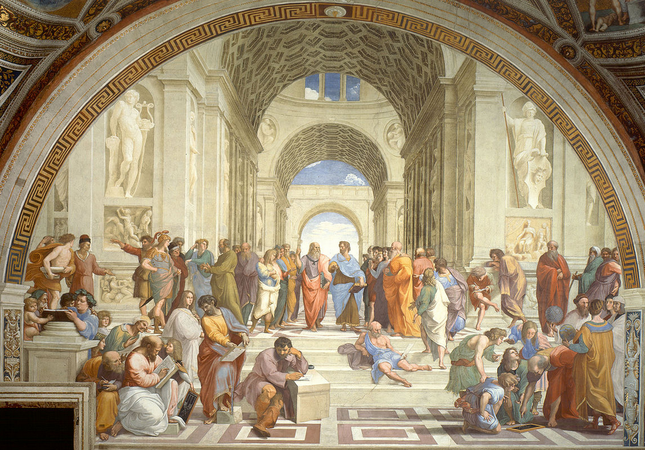Week 1: Two Cultures
To say that this week's lesson was an eye-opener for me would be an understatement. Looking back, the concept of "two cultures" is one that I have always observed at UCLA. In fact, it seems that the entire UCLA student body can be summed up in the divide between "north campus" and "south campus." This can largely be attributed to the fact that the disciplines of art and science are separated geographically.
 |
| "A Campus Divided." PRIME, https://prime.dailybruin.com/justinnorth&southcampus. |
Unfortunately, however, this geographical divide has ultimately led to the creation of certain stereotypes that contribute to the perpetuation of this north/south campus separation (Vesna). As a philosophy major, I have personally experienced feelings of intimidation by those who claim that "south campus majors" are the true "brains" of the school. I would be lying if I said I've never reconsidered my major and thought about making the change to studying a life science. Even outside of school, I've been told that philosophy (like all other fields of the humanities) is a completely "useless" subject to study.
 |
| "The Difference Between Science and Philosophy." Scientific Sadhu, https://scientificsadhu.blogspot.com/2020/04/difference-between-science-and-philosophy.html. |
Such experiences admittedly caused me to view intellectual life as "being split into two polar groups" (Snow 4). As I was navigating this week's materials, I was reminded of a course I took in my junior year: Philosophy of Contemporary Science. Now, to be quite honest, I had absolutely no idea what to expect in this class. And my first thought was, "How is it even possible to discuss science within the context of philosophy?" Little did I know that this course would provide me with the ability to see that these two completely different disciplines are not as mutually exclusive as I initially thought them to be. In fact, one of my biggest takeaways was that philosophy should both inform and be informed by science.
 |
"School of Athens." Khan Academy, https://www.khanacademy.org/humanities/ap-art-history/early-europe-and-colonial-americas/renaissance-art-europe-ap/a/raphael-school-of-athens. Professor Vesna's optimistic outlook on "bridging and synthesizing many worlds" reminded me of Raphael's famous painting, School of Athens. The majority of people would be successful in identifying the two men in the center as two of the greatest thinkers of all time: Aristotle and Plato. But what they might also fail to recognize are the many other individuals surrounding them. These individuals are not just philosophers; they are also the mathematicians and scientists of antiquity. And it is here that they are gathered under one roof, discussing their ideas in perfect harmony. |
Perhaps this seemingly insignificant piece of art can teach us a thing or two.
Works Cited:
1.) Jung, Justin. "A Campus Divided." PRIME, https://prime.dailybruin.com/justinnorth&southcampus.
Accessed April 6, 2023.
2.) "School of Athens by Raphael." Khan Academy, https://www.khanacademy.org/humanities/ap-art-
history/early-europe-and-colonial-americas/renaissance-art-europe-ap/a/raphael-school-of-athens.
Accessed April 6, 2023.
3.) Snow, C.P., Two Cultures and the Scientific Revolution. Cambridge University Press, 1959.
4.) Spotswood, Samantha. College Magazine, https://www.collegemagazine.com/ucla-north-vs-south-
campus/. Accessed April 7, 2023.
5.) Vesna, Victoria. "Toward a Third Culture: Being in Between." Vol. 34, No. 2, 2001, pp. 121-125.
6.) Vesna, Victoria. Lecture: Two Cultures Part III. DESMA 9: Art, Science, and Technology. University
of California, Los Angeles.

I think it's really interesting to hear your thoughts on the great physical divide between north and south campus, as well as the stigma that arises. I am a psychobiology major, so I spend most of my time on the opposite side of campus from you, but I have heard similar comments from people about what major is the "most STEM" and truly the "hardest and most useful." I think that there is a reason that there are so many different fields of study, as they can all come together and help to better understand the world in a deeper context and may compliment each other. I think that the class you took about philosophy and science is great as it is promoting interdisciplinary thinking, and reminds me of the CLUSTER class I took freshman year that looked at human aging, both from the scientific cellular process as well as the social changes and reforms that have been made.
ReplyDelete